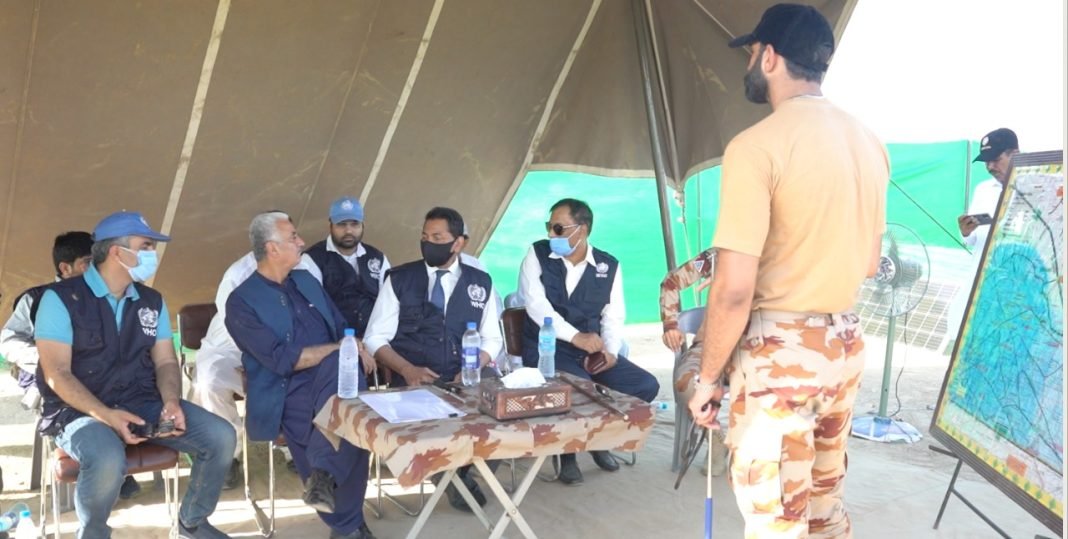Sohabatpur, 15 September 2022 (TDI): The Representative of World Health Organization (WHO) Pakistan, Palita Mahipala visited the Frontier Corps health camp, in District Sohabatpur.
Palita Mahipala remarked that “It is important to ensure that disease surveillance and vector control activities are in place to detect, prevent and respond to disease outbreaks.”
WHO Pakistan Representative visited Frontier Corps health camp, District Sohabatpur.
“It is important to ensure that disease surveillance and vector control activities are in place to detect, prevent and respond to disease outbreaks” remarked Dr Mahipala pic.twitter.com/LRavkXvltM
— WHO Pakistan (@WHOPakistan) September 14, 2022
During the visit, WHO Representative provided reassurance of a tent city for flood victims in Nasirabad. To determine the most urgent need of the displaced people, he also met with representatives of the local administration and the health department.
According to WHO Representative, flooding in Baluchistan had severely damaged the area, and those who had been impacted urgently need special medical facilities and care.
Moreover, he claimed that the WHO had sent personnel to areas affected by the floods to assist the locals in preventing the spread of skin, malaria, and diarrheal ailments.
Additionally, he said that “We will not leave the flood-stricken people alone in this difficult time.”
Besides this, the WHO delegation was informed that the Pakistan Army, the Frontier Corps, and the provincial health department had set up medical camps in every area affected by the floods. These are offering the greatest facilities for treatment to those in need.
Also Read: WHO establishes medical health camps in Balochistan
Floods in Pakistan
Following monsoon rains that have continued to strike the majority of Pakistan since June, nearly 12,800 people have been injured, and more than 1,480 people have perished, according to the National Disaster Management Authority (NDMA).
About a third of Pakistan is submerged due to these devastating floods and the government of Pakistan has declared floods a national emergency.
Moving ahead, over 540,000 individuals residing in relief camps, and over 33 million people have been impacted. Most of them are in Sindh and Baluchistan Province. According to Pakistani officials, the flooding is the worst to hit the country in recent history.






